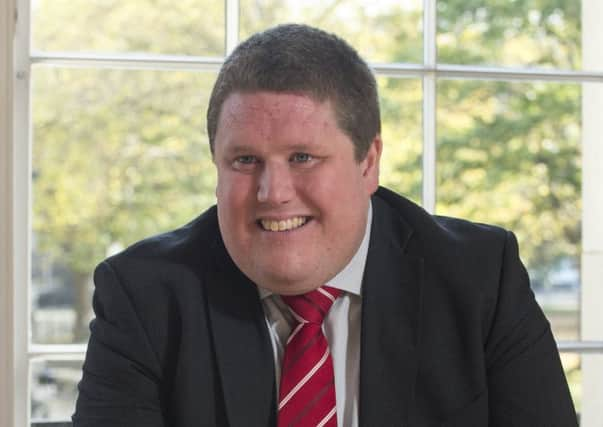Andrew Paterson: New Year resolutions should include visit to your lawyer


Update your Will
First on the list is a reminder to put in place a Will or ensure your existing Will is up-to-date.
Wills are imperative to guarantee your assets pass to your nearest and dearest. It is all too common a misconception that when you die, the law will automatically take care of matters for you.
Advertisement
Hide AdAdvertisement
Hide AdMany are of the view that your estate will simply pass to your spouse, civil partner, partner or children. Unfortunately, this is not always the case. Give your local solicitor a call and let them know your instructions.
Put in place a Power of Attorney
We recommend that all adults, regardless of their age, put in place a Power of Attorney (or ensure their existing Power of Attorney is up-to-date). A Power of Attorney allows you to make provision in advance for the possibility of you becoming incapable of managing your own financial and/or welfare affairs during your lifetime. This becomes increasingly important as the risk of supervening mental incapacity grows through longevity, illness or accident.
If you do not have a Power of Attorney in place but lose capacity, the law does not simply allow your spouse or other close family members to act on your behalf automatically. Instead, those who wish to act on your behalf must go through a protracted and expensive court procedure to be appointed as Guardians. It would be at the court’s discretion who is appointed.
Implementing a Power of Attorney allows you peace of mind and the control of choosing for yourself who would assist you in such circumstances.
Update your Pension Nomination Forms
It is imperative to ensure your pension nomination forms are updated and you have appointed your pension to desired beneficiaries.
Consider your Inheritance Tax Planning
There are many ways you can reduce your inheritance tax (IHT) liability if you plan correctly. It is really never too early to start this planning, especially if you are concerned about the IHT liability upon your death.
Every individual has a tax free threshold (referred to as the ‘nil rate band’) which is currently £325,000. Broadly speaking, IHT will be payable at 40 per cent of the value of your assets that exceed this threshold unless specific assets qualify for the available reliefs. For example, from April 2017, there is an additional tax free allowance if you pass on a home to your descendants provided that all the relevant eligibility conditions are met.
Transfers between spouses during lifetime and on death are exempt for IHT purposes (as are transfers to charities).
Advertisement
Hide AdAdvertisement
Hide AdHowever, spouses can also benefit from the transferable nil rate band, meaning that, in time, a surviving spouse could benefit from a tax free allowance of up to £1,000,000 on the second death.
Gifts are one of the most common ways to plan for IHT. Some options are: Potentially exempt transfers – “PETs” are generally lifetime gifts to individuals that do not attract immediate IHT. Provided the person making the gift (the ‘donor’) survives for 7 years from the date of gift and retains no benefit in the gifted asset, the transfer will fall out of account completely for IHT purposes.
Annual exemption for IHT purposes – Everyone has an annual exemption of £3,000. This can be carried forward for up to one year if it is unused.
Normal expenditure out of income exemption - There is a ‘normal expenditure out of income’ exception for IHT purposes. Gifts within this exemption are immediately exempt from IHT, so there is also no need to survive for seven years for the exemption to apply. A gift qualifies as normal expenditure out of income if (1) it is made as part of the donor’s normal expenditure; (2) it is made out of the donor’s income, taking one year with another; and (3) after allowing for all gifts forming part of the normal expenditure, the donor is left with sufficient income to maintain their usual standard of living.
Andrew Paterson is a Partner with Murray Beith Murray